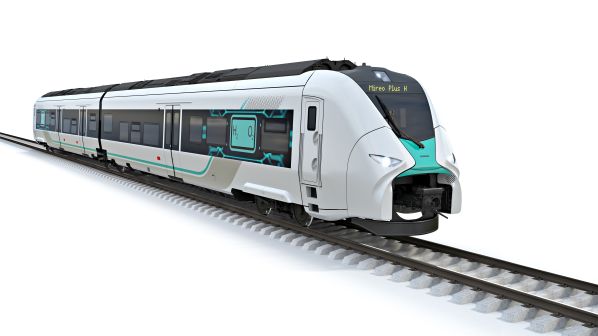The two-car hydrogen multiple unit (HMU) will undergo a one-year trial on the Upper Neckar and Nagold Valley lines in the state of Baden-Württemberg. Around 120,000 train-km of services are scheduled between Tübingen, Horb am Neckar and Pforzheim, and the train is expected to save around 330 tonnes of CO2 over the year.
The trains will eventually replace DB’s DMU fleets on the route.
DB says the train will be powered through green hydrogen produced by DB Energy at the DB Regio-Werk site in Tübingen. The fuel will be produced through electrolysis at the mobile filling station, which will be powered through renewable energy sources.
DB is also currently converting its maintenance site in Ulm to service HMUs.
The trials will be primarily supported by the Baden-Württemberg government, alongside additional funding from the German Federal Ministry of Transport and Digital Infrastructure (BMVI) through its National Innovation Programme for Hydrogen and Fuel Cell Technology (NIP 2).
Siemens says the Mireo H will cost between €5m and €10m when commercially available. The train will have a top speed of 160km/h and a range of 600km, and can be refuelled in 15 minutes. A planned three-car variant is expected to have a range of up to 1000km. In addition, Siemens says the platform’s modular design offers low maintenance and repair costs.
“The train will have 1.7MW of traction power providing up to 1.1m/s² acceleration and a top speed of 160km/h,” says Mr Michael Peter, CEO of Siemens Mobility. “This technology will make hydrogen-powered train operation faster, more efficient and more environmentally friendly.”
Currently around 40% of DB’s 33,000km network is unelectrified, and is operated using a fleet of around 1300 diesel rail vehicles. DB hopes hydrogen trains will eventually offer a more cost-effective alternative to full electrification on low-traffic regional lines, in line with DB’s target of full decarbonisation by 2050, as well as decarbonisation targets outlined in the European Union’s Green Deal.

